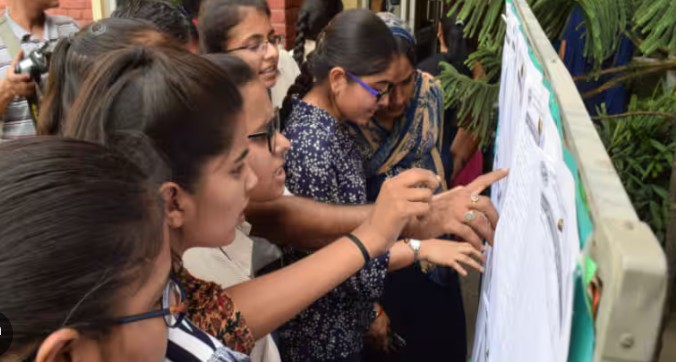Professional Commerce Courses Dominate First UG Merit List in Mumbai; Basic Sciences See Decline

Mumbai, 28th May 2025: The first merit list for undergraduate admissions released on Tuesday reveals a dominant trend across Mumbai’s colleges: career-focused commerce programmes are outperforming traditional science courses, with the former maintaining high cutoff scores while the latter experience a noticeable dip.
Colleges offering professional degrees such as BMS (Bachelor of Management Studies), BBA (Bachelor of Business Administration), BAF (Bachelor of Accounting and Finance), and other self-financed options have seen a significant surge in demand. Experts attribute this trend to the growing preference for flexible, industry-aligned courses that offer faster entry into the job market.
“There’s a definitive shift towards career-oriented education,” said Vijay Dabholkar, principal of Jai Hind College. He noted that many science programmes under Mumbai University are witnessing reduced interest. “Students today value shorter academic commitments and the freedom to engage in internships, part-time work, or entrepreneurial efforts,” he added. Dabholkar also shared that over 40% of this year’s applicants came from outside Mumbai, further intensifying the competition for popular professional courses.
R A Podar College reported marginal increases in most cutoffs, with its BAF programme drawing more than 800 applications for just 60 seats. “We’ve seen increased inquiries from parents about integrating professional credentials like CA or ACCA alongside degree courses,” said principal Dr Vinita Pimpale. Electives such as behavioural economics are also seeing a rise in popularity, she added.
Mithibai College’s newly introduced BSc in Health Sciences attracted around 250 applications for its 60 available seats, according to principal Krutika Desai. Meanwhile, KPB Hinduja College academic advisor Minu Madlani noted that skill-based and practical education is driving student choices, saying, “A 90% cutoff shows how high the demand is for such programmes.”
At N M College, principal Parag Ajagaonkar reported rising interest in all commerce-related streams, including management and finance. Jai Hind College’s new-age offerings, such as the Bachelor in Digital Strategy (BDS) and Bachelor in International Accounting (BIA), received an overwhelming response, with 400–600 applicants competing for 60 seats each.
While commerce programmes thrived, science courses told a different story. Ramnarain Ruia College saw a steep drop in cutoffs for biochemistry—from 74.3% last year to 64% this year. Principal Anushree Lokur explained that many science students prioritise entrance exams like JEE and NEET, which often results in lower board scores and consequently, lower cutoffs. “This trend has affected courses such as computer science and biochemistry,” she said.
Nevertheless, some science streams remained resilient. Biotechnology maintained its status as a high-demand course, closing its first list at an impressive 94.6% at Ruia. Disciplines such as psychology, microbiology, and statistics also attracted top scorers.
St Xavier’s College principal Dr Rajendra Shinde observed a growing inclination toward self-financed and interdisciplinary programmes. “The BA cutoff dipped from 92.33% to 90%, whereas the BA Psychology-English combination saw a rise from 91.83% to 93.33%,” he said, underscoring the nuanced shift in student preferences.
The data from the first list suggests a continuing evolution in academic choices, with practical exposure, flexibility, and future employability becoming key factors in determining the popularity of undergraduate programmes in Mumbai.







